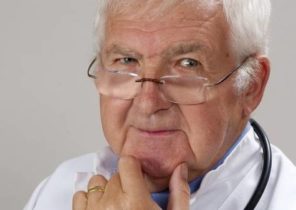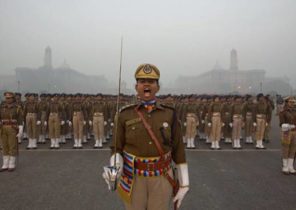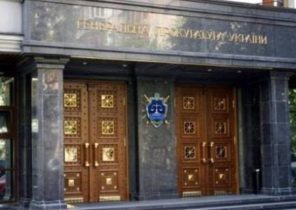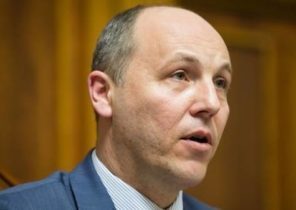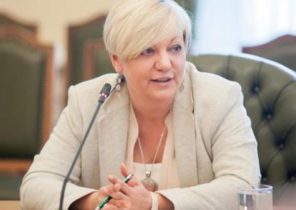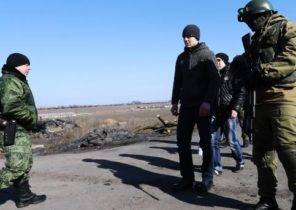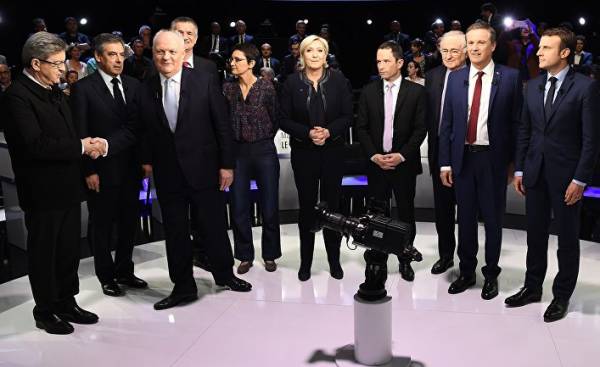
Bruno Bernard analyzes the political rearrangement in the course of the current campaign through the prism of slow offset of “political boards” since the formation of the V Republic.
For a long time, French policy was guided by the interests of the nation. At V the Republic is reflected in the person of President Charles de Gaulle, then Pompidou honorably coped with this task. They were followed by the “modernists” Giscard d’estaing and Mitterrand, who were primarily interested in the society and the individual. They moved away from them seemingly outlived their national needs and turned his face to the “European construction”, a kind of political Moloch, who must without end to feed “more Europe”. So was born our equivalent of the famous phrase of Thatcher “there is no Alternative”: “outside Europe, there is no salvation”.
Several individual acts of resistance we are all the same: the call of Jacques Chirac in 1978 with the filing of Marie-France Garo (Marie-France Garaud) and Pierre, This (Pierre Juillet), or the candidacy of the defender of the sovereignty of Michel Debre (Michel Debré) in 1981. Anyway, the whole political class (both right and left) decided to put aside the nation and move into a bright future where more and more of Europe, free trade and competition.
One of the political consequences of the new “europaparlament” was the immigration to the result of article 8 of the European Convention of human rights (ratified by France in 1974 when the acting President Alain Poire): in it was enshrined the right to protection of family life, which later became the basis for family reunification. A fine principle in theory, disaster in practice. In Africa and Europe there are different definitions of family, and a big difference in the fertility rates of countries of immigration and emigration have created the conditions for colonization without integration and assimilation, and the majority of politicians decided to simply ignore the consequences. It is gradually formed in Europe of a zone of ethnic, communal and religious section. Those, in turn, caused a sense of cultural insecurity among the indigenous population, which began to leave from certain areas (next, they were presented their own destiny by governments). In Europe there is segregation, and it is impossible not to recognize that over time, it only intensified.
Europe, the birthplace of human rights, forbade themselves to draw the line between their own nationals, Europeans and immigrants from third States, while the elimination of borders was a logical continuation of the process. Thus, in 1995 there was a utopia called “Schengen area”, which, if you recall a recent example allowed a wanted German terrorist has to get through France to Milan (where he was eliminated). Here it is, the sacred freedom of movement on the price which no one thinks.
Next to freedom of movement are the other pillars of Europe, such as freedom of trade and competition. Those imbued with naïve optimism and a considerable share of hypocrisy the philosophy would be fatal to European industry. During the “glorious thirty years” was followed by years of deindustrialization and mass unemployment, which is especially painfully felt in France, with its rigid economy of the large and in varying degrees of nationalized companies.
France entered the political paradox, from which it can not escape to this day. Our political class (with rare exceptions) began to dream about his Thatcher and Reagan for breaking the old foundations, the Blair, Clinton and Schroeder to make it all presentable, about Obama or Trudeau to finally introduce us into a post-national, post-racial, post-industrial and post-labor society. Such views of government parties, who share power since 1981, has created a new reaction. It took the form of the National front and its leaders, father and daughter Le Pen, and (what is often overlooked) the ultra-left, which regularly receive more than 10% in the presidential election.
For years, the political space of the belief in free trade and Europe is declining, which entails rebuilding. There’s no room for two well-defined political forces that embody this proposal. Fake opposition to those in power the right and the left coming to an end. Political plate to the center-right and center-left, which until recently shared a narrow isthmus, gradually merge into a small Pangaea. Plate of conservatism, populism, nationalism and patriotism are still in motion, because they did not receive proper display. Whatever it was, their desire to merge is not in doubt. François Fillon could be this unifying force, he received the mandate as a result of the primaries right, however, investigators, the media and his own error had decided otherwise. So now, marine Le Pen, which in November 2016 feared that it pushed back a candidate Fillon, flies on the top of the ratings, although not perhaps to unite the right.
The epitome of the new “Pangea” will be Emmanuel macron, the one who managed to present himself to the French political white sheet on which they can project their desires and fantasies. It attracts a Communist Brusca Patrick (Patrick Braouzec) and Alain Madeleine (Alain Madelin), françois Bayrou (François Bayrou) and Pierre Berger (Pierre Bergé), as well as supporters of Strauss-Kahn, Hollande, juppé and Le Mare, not to mention the eternal Allen Menke (Alain Minc), Jacques Attali (Jacques Attali) and Bernard Kushner (Bernard Kouchner), who for decades side of the “sensible” candidate.
A list of these presentable people who always say, as it should, not too loud and insistent, but always calculated perfectly reflects what has produced the system in the last 40 years. These europhiles and liberals embody everything that failed and led to the current situation. Today, however, they manage to hide behind a new product, a modern avatar of Lecania, Giscard, rokara, Ballajura, Delors, Jospin, Bayrou, Strauss-Kahn and others. He is right that is not very right, and left, not too left-wing. That is, the centrist swamp, which filled his hand in theatrical productions and arranges for the necessary staging of the French revolution, the popular front, the occupation on 18 June 1940, the war in Algeria, or may 1968. Exactly these people manage with the apparent connivance of the media to maintain the illusion of a split between right and left.
Surprisingly, the shadow theatre, which has turned French politics, endlessly talks about this with references from the past. The reason is intellectual laziness or obsession French garden in which every tree should be round, triangular or square, regardless of the realities and facts?
The 1990s have been the era when Sheinman, Pasqua, séguin, Fund Marc Bloch and others have called for a reorganization of the political landscape for its departure from outdated dividing line. Perhaps all this would’ve happened sooner in the Wake of the victory of the “no” in the referendum of 2005, if Nicolas Sarkozy in 2007 with an enviable talent would give him an ephemeral second wind.
Ten years and two presidents later (one was right, second left, and none of them will be remembered in the annals of history), apparently, the time has come for the political stabilization of the continents. On the one hand, macron represents a system with all its good and bad qualities. On the other hand, Le Pen represents the party of anger, which growls ever since the first oil crisis. The so-called “Republican” right, it will be harder to exist because they moved to the center and left in the past, the desire to be a party of the people, by becoming a party of the elite. Only complete regeneration can allow them to challenge the National front and fight with him for the people, the nation and the Republic.
Now, as I write these lines, everything points to the fact that for the first time in the history of our Republic, the candidate of the right will be defeated in the first round, as the official candidate of the Socialist party, allowing an informal representative of the socialists and the leader of the National front to pass to the second round.
Although the rules and can win the June parliamentary elections, the results of the presidential campaign will force them to move to the regions and prepare for the long winter, as did the socialist party after the defeat in 2002. This long winter can go softer, if they will undertake the necessary ideological work to consolidate the new political continents, which will appear after the presidential election. Synthesis and reasonable agreement is essential if they don’t want to spend many years in a snowy tundra.

